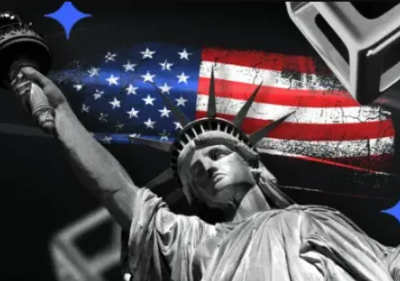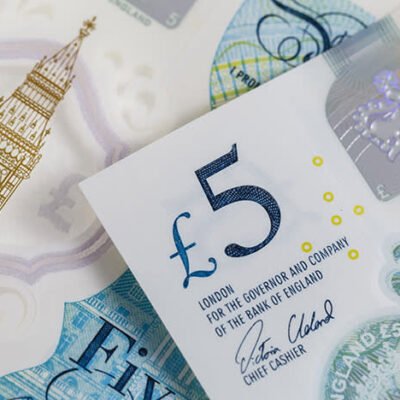Pope Leo XIV as missionary, Bishop and Cardinal, followed and lived according to St Augustine’s … More
The election of Pope Leo XIV, a member of the Augustinian Order, has renewed interest in the teachings of St. Augustine (354-430). The Order of St. Augustine (OSA), although not formally founded until 1244, drew its inspiration from the rules for monastic life established by the saint. Augustine’s numerous works cover mostly theology, philosophy, biblical exegesis, apologetics, and pastoral matters. In some of his writings, though, we can find principles helpful for business and economics.
A recent well-researched article by Matthew Becklo captured what I have also heard from various Augustinians: The Pope is “a man thoroughly drenched in Augustine’s theology and spirituality.” Following St. Augustine, he understands that “the Church isn’t striving to create heaven here on earth; instead, it’s striving to draw earth up into heaven.” With this caution in mind, what were St. Augustine’s views regarding earthly policy?
The State
Noted Austrian economist Joseph Schumpeter (1883-1950) writes in his History of Economic Analysis: “The accomplished author of De civitate Dei and of the Confessiones—whose very obiter dicta reveal analytic habits of mind— [never]
went into economic problems.” He did, however, treat of “the political problems of the Christian state.”
Augustine’s view of the state is deeply rooted in his theology, particularly as outlined in his seminal work The City of God (De civitate Dei), where he describes two cities, the City of God and the Earthly City. The first comprises those who live according to God’s will and love God above all else. It is eternal and governed by divine justice. Members of the second live according to self-love and seek worldly power. This “city” is temporal and marked by pride, conflict, and disorder.
‘City of God’ – from miniature by St. Augustine (translated by Raoul de Presles), 15th century. … More
Augustine’s reflections on this Earthly City inform his views on political economy. Dino Bigongiari summarizes Augustine’s view of the state thus: “[The immoral] are the ones whose needs have called into the existence the political State. The State is necessary because the people, with all their greed, with all their desires, would otherwise soon have exterminated themselves.” The State helps to maintain relative peace and order in a fallen world, but Augustine never saw it as a means of salvation. Those who follow St. Augustine’s writings do not idealize the state. Salvation lies solely with God and the Church; love for God and neighbor must guide political economy.
Some brief yet essential passages in Augustine address private property, business profits, economic value, and the relationship between law and justice. To continue, I will briefly elaborate on these ideas.
Private Property
It makes little sense to speak about private property in the “City of God,” but here on Earth, we see evils such as conflict, war, and injustice. Private property (as Thomas Aquinas later argued) does not eliminate these evils but does help to mitigate them. Augustine urged detachment from material goods but did not advocate the abolition of private ownership.
Private property, he argued, was not divinely ordained but a human construct—created and regulated by humans and the authorities of civil society for practical purposes. “It is by human right,” he wrote, “that we say this estate is mine.” God has given the earth to all, but human laws make private ownership useful and tolerable; after original sin, this better accords with humanity’s fallen nature. Augustine wrote, for instance, in opposition to a heretical sect called the “Apostolics”: “The people styled ‘apostolic’ are those who arrogantly claimed this title for themselves because they refused to admit married folk or property owners to their fellowship, arguing from the model of the many monks and clerics in the Catholic Church. But such people are heretics because they cut themselves off from the Church by alleging that those who, unlike themselves, marry and own property have no hope for salvation” (De haeresibus 40).
Closely connected with private property is the reality of business and profit. Business, Augustine wrote, “is like eating, a morally indifferent act, which can be good or bad depending on the ends and the circumstances.” Pedro de Aragón, a 16th-century Augustinian theologian, expounded: “It is not business, but businessmen, who can do evil.” Augustine stressed that true poverty is in the heart.
The Theory of Value
There is a chapter in The City of God titled “The distinctions among created things and their different ranking by the scales of utility and logic.” Augustine’s reflections here had an immense influence on later economic thought. In the divine order and in the order of nature, “living things are ranked above inanimate objects; those which have the power of reproduction, or even the urge toward it, are superior to those who lack that impulse. Among living things, the sentient rank above the insensitive, and animals above trees. Among the sentient, the intelligent take precedence over the unthinking: men over cattle.” But in the earthly order, utility—usefulness for man—is the main determiner of value. In Augustine’s words: “There is another gradation which employs utility as the criterion of value. On this other scale we would put some inanimate things above some creatures of sense…. For instance, would not anyone prefer to have food in his house rather than fleas?”
The Late Scholastic notion of just price was also influenced by Augustine’s theory of value, which states that the value we place on goods depends on the utility we derive from them. Since our needs and desires are subjective, utility is subjective as well. According to Schumpeter, Aquinas relied on Augustine once again when arguing, “The just price of things is not fixed with mathematical precision, but depends on a kind of estimate, so that a slight addition or subtraction would not seem to destroy the equality of justice.” Augustine himself acknowledged that it is common to try to buy low and sell high, but emphasized that fairness is the moral course to follow in any transaction. For instance, he speaks favorably of a man who paid the fair price for a book even when the seller was offering it at a lower price.
Justice and Law
Augustine developed the notion that unjust laws are not true laws: a law, to be such, has to fulfill certain requirements. As we know, few things are more important for an economic system that leads to integral human development than the institutions of justice and the rule of law. “Without justice,” Augustine wrote, “there is no realm, nor province, nor city, nor hamlet, nor house, nor family, nor even a band of robbers and highwaymen that can last.”
In Book IV of The City of God we read: “If justice is taken away, then, what are kingdoms but great robberies? For what are robberies themselves, but little kingdoms? The band itself is made up of men; it is ruled by the authority of a prince, it is knit together by the pact of the confederacy; the booty is divided by the law agreed on. If, by the admittance of abandoned men, this evil increases to such a degree that it holds places, fixes abodes, takes possession of cities, and subdues peoples, it assumes the more plainly the name of a kingdom, because the reality is now manifestly conferred on it, not by the removal of covetousness, but by the addition of impunity. Indeed, that was an apt and true reply which was given to Alexander the Great by a pirate who had been seized. For when that king had asked the man what he meant by keeping hostile possession of the sea, he answered with bold pride, ‘What you mean by seizing the whole earth; but because I do it with a petty ship, I am called a robber, whilst you who do it with a great fleet are styled emperor.’”
A dictum of Augustine’s was, “That which is not just seems to be no law at all” (On Free Will I.5). To be just, a law must derive from the law of nature in accordance with the rules of reason and usefulness to man. The just law must also be possible in the context of the customs of the country. It must be formulated by the one who governs the community, but it may not exceed his power as a lawgiver. The subjects should bear the burden of the law in accordance with proportional equality.
Pope Leo XIV. (Photo by Simone Risoluti – Vatican Media via Vatican Pool/Getty Images) Pope Leo … More
Conclusion: The Church and Economics
We should not exaggerate the Pope’s influence on today’s policy discussions. For instance, despite Pope Francis’s more interventionist views, his Argentine compatriots elected Javier Milei, whose free-market views were the most radical in the country’s history. During the electoral campaign, one of Milei’s mentors even advocated breaking relations with the Vatican. And this was despite the fact that over 60% of the Argentine population is Catholic, compared to approximately 20% in the United States. This may give some indication of what influence we might expect Pope Leo’s views to have. The Catholic Church’s social doctrine, in which Leo XIV is very well versed, establishes that the concrete economic policy solutions is not a matter of dogma but of prudential decisions. The battle to choose the best policies is a task of the Earthly City. It is a great help, however, to have in the highest recognized moral pulpit someone who recognizes the autonomy of economic science and, at the same time, provides moral direction and clarity.
Josh Gregor, jgregor@acton.org contributed to this piece





